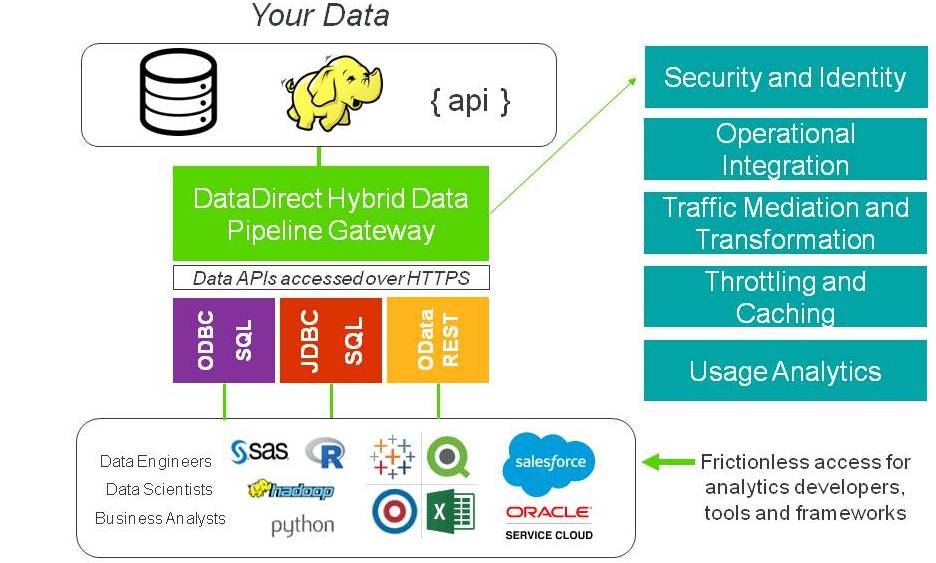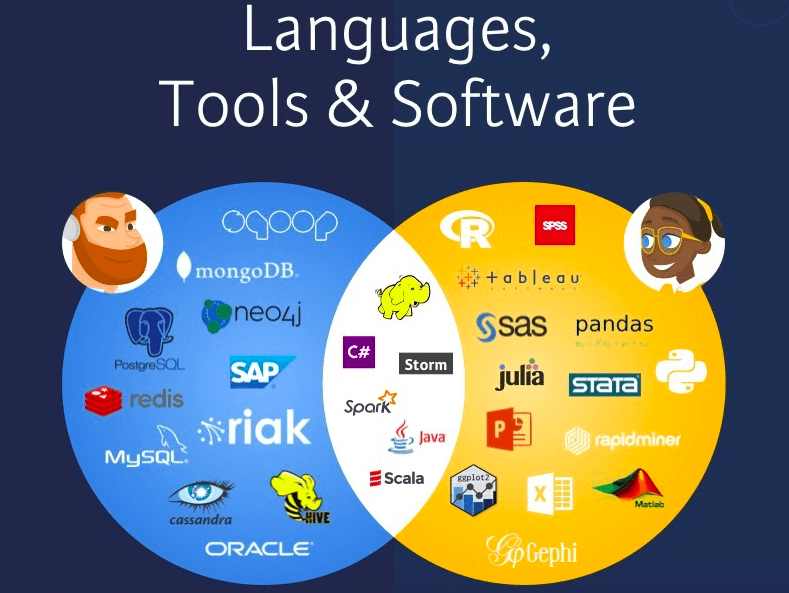API Management to Support Analytics

API management is the practice of publishing web APIs, enforcing usage policies, controlling access, and publishing analytics on usage. There are many established players in the space from CA, Apigee, IBM, TIBCO or 3scale. Analytics in the context of API management is usually related to the consumption of provisioned web APIs. However, API management to support analytics, or data API management, is a newer capability being driven by industry trends, such as open analytics and an advanced analytics market growing to 30 billion by 2019 per Markets and Markets.
Leave No Developer Behind
The first element of API management design, cited in a TechCrunch article on "5 Rules for API Management," is to make the APIs accessible to different classes of developers and partners. Part of my role is to advocate for developers supporting that growing advanced analytics market across data engineers, data scientists and business analysts. API management platforms primarily provision APIs for application and process integration that leave many of those people behind, without native API design for data integration through standard interoperable interfaces such as OData (REST) or ODBC/JDBC (SQL). This is in part what is driving the trend around open analytics strategies to expose data APIs; and there is a divide between application and data integration in the industry.
General vs Data API Management
The table below contrasts similar high level capabilities between data API management versus general API management:
| Capabilities of General API Management | Data API Management to Support Analytics (DataDirect Hybrid Data Pipeline) |
| API Discovery | ✔ |
| API Security | ✔ Learn more in our security statement |
| API Identity | ✔ Learn more about managing users |
| Traffic Mediation (SOAP to REST mediation, data format transformation, legacy application integration) | ✔ Supports a mix of backend data stores of varying sizes and shapes including RDBMS, Analytics Databases, Big Data Platforms, NoSQL, SOAP APIs, REST APIs |
| Traffic Shaping (rate limitation, caching etc) | ✔ Learn more about rate limits with our Limits API |
| Analytics & Traffic Monitoring | ✔ |
| API Metering, Billing and Monetization | ✔ Learn more about metering with our Limits API |
| Data Protection (data encryption, data masking etc for PCI/PII compliance) | ✔ Learn more in our security statement |
| Mobile Optimization (pagination, compression, JSON etc) | ✔ Read more about page size and caching with OData REST API for mobile clients |
| Deployment Flexibility (on-premise, cloud, managed service, SaaS, hybrid) | ✔ Deploy in the cloud or on-premises |
| Operational Integration (system monitoring, clustering, scalability, migration) | ✔ Learn more about clustering for horizontal scale of the Data APIs |
| Cloud Integration (SSO to SaaS providers, IaaS integration, SaaS data connectors, hybrid cloud support) | ✔ Supports authentication mechanisms for integration with a variety of cloud data sources |
| API Orchestration | ✖ Data APIs expose data directly from the source without an orchestration layer |
| Uniform Interface/Proxy to Multiple Backend Messaging Protocols (JMS, RMI etc) | ✖ Data APIs interact directly with databases and other APIs, rather than messaging protocols |
| Community Management (blogs, forums, social features etc) | ✖ Data APIs conform to industry standard specifications for SQL (ODBC/JDBC) and REST (OData); and community management is handled externally and can vary by third-party consumer |
| API Lifecycle Governance (versioning) | ✖ |
| Mobile Integration (support for push notifications, geolocation, streaming protocols | ✖ |
Progress DataDirect Hybrid Data Pipeline is engineered for data API management to connect analytics professionals with popular tools and programming frameworks.

API Management Meets Data Integration
We discussed this topic of data API management in a general session titled, “Welcome to the Era of Open Analytics," at Cloud Expo in New York City and got a great reception from developers and architects building the next generation of cloud-native applications. Learn more about Open Analytics, which extends our API Management capabilities to support data integration and external analytics for the growing developer roles in data engineers and data scientists.

Graphic Source: DataCamp

